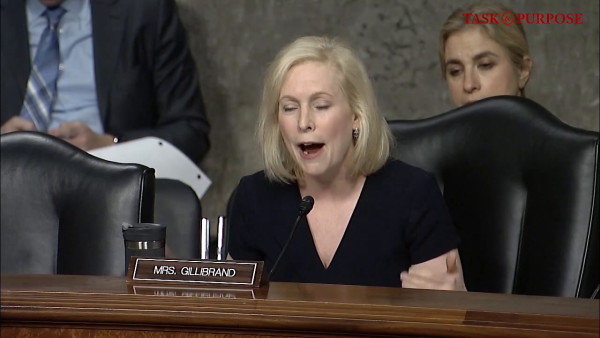DoD IG: Military sexual assault more likely than combat to result in PTSD
While senior leaders continue to say this is a priority, safeguards continue to fail.

A new report from the Pentagon's Inspector General puts the severity of military sexual assault in a new context: It's more likely to result in post-traumatic stress disorder than going into combat.
According to the IG's report released on Monday — Top DoD Management Challenges – Fiscal Year 2020 — 45% of women and 65% of men who reported being raped met criteria for PTSD, compared to 38.8% of men who had PTSD from experiencing combat.
“The fact that this doesn't seem obvious is really worrisome,” tweeted Military Times' Meghann Myers of the report, which was referencing a study from the Department of Veterans Affairs' National Center for Post-Traumatic Stress Disorder.
Putting the indisputable fact that sexual assault is a devastating, life-changing event aside, for the military, it's proving to be detrimental to the force — a 2016 report from the DoD Office of People Analytics found that 28% of women, and 23% of men who say they experienced sexual assault “took steps to leave or separate from the military,” according to the IG's report.
Yet sexual assault continues to rise across the services.
Earlier this year, a Pentagon report showed that sexual assaults had reached a four-year high, and saw a 13% increase between 2017 and 2018.
Monday's report also says that although DoD policies require the services to ask sexual assault victims about their preference for prosecuting offenses — either through courts-martial, or in civilian court — the IG found that the department “did not establish a DoD-wide process to ensure victims of alleged sexual assaults were asked about their preferences for prosecution or to ensure that their preference was documented.”
Sexual assault has also risen almost 50% at military service academies in two years — though the report says that the IG has since found that the “number of reports of sexual assaults were not accurately reported to Congress” by the Air Force Academy.
Meade Warthen, spokesperson for the Air Force Academy, told Task & Purpose that “USAFA reported all sexual assaults where we had the victim's permission and USAFA met all Congressional reporting requirements.
“The system we have now is designed to prioritize victim choice in how their assault is reported. It provides them the promise of confidentiality and the ability to still seek help. USAFA actually over-reported because some records were put into the database without a signed 2910 – paperwork that shows victim consent for an official report. These reports were removed upon higher review because they did not meet current reporting guidelines that require victim consent. Any decision to change to these reporting requirements would have to be made above our level and should be balanced with a victim's rights to privacy,” Warthen said.
He added that the Academy encourages reporting, “and we encourage victims to sign a 2910, but ultimately we respect their wishes.”
The IG is “currently conducting an evaluation” of the U.S. Military Academy at West Point to assess their handling of sexual assaults, and plans to do the same with the U.S. Naval Academy, according to the new report.
The bottom line is that while senior leaders continue to say this is a priority, safeguards continue to fail, and service members continue to slip through the cracks.
In May, Sen. Kirsten Gillibrand got to the heart of the issue while then-nominee for the Army Chief of Staff, Gen. James McConville, sat before Congress for his confirmation hearing.
“I am tired of excuses. I am tired of statements from commanders that say 'zero tolerance.' I am tired of the statement I get over and over from the chain of command: 'We got this, ma'am. We got this,'” she said. “You don't have it. You're failing us.”
Update: This article has been updated to include a response from the Air Force Academy.
